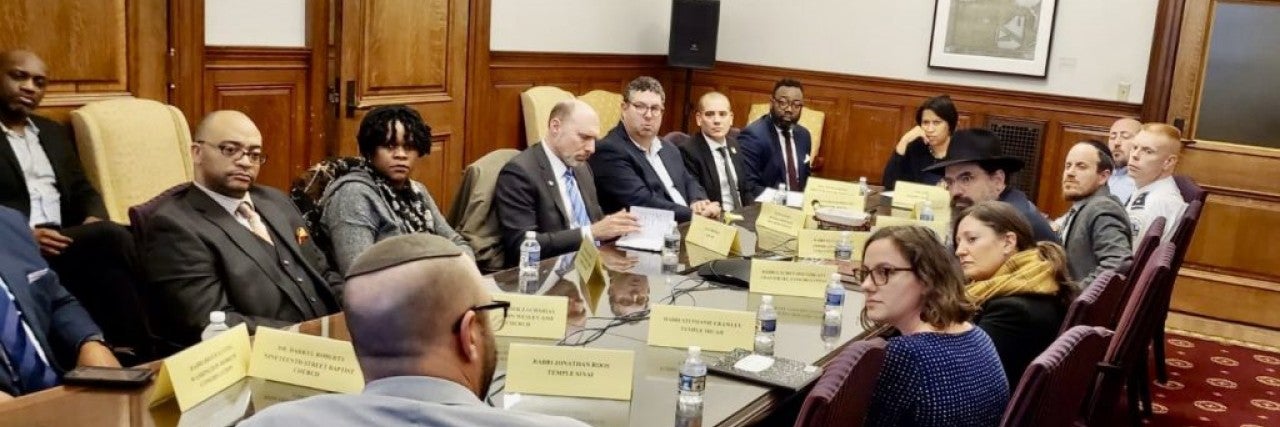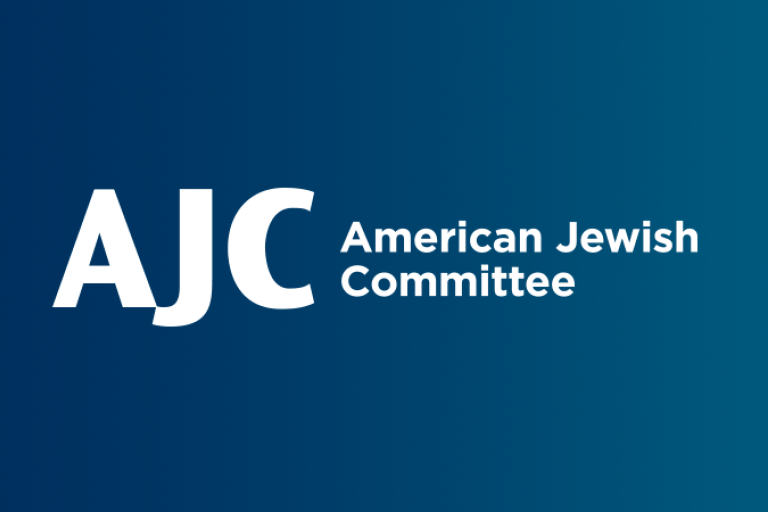January 7, 2020 — Washington DC
This piece originally appeared in Washington Jewish Week.
Following a stream of anti-Semitic attacks in New York during Chanukah, D.C. Mayor Muriel Bowser met with local community religious leaders to discuss how to combat anti-Semitism in the District.
Several rabbis from Washington and representatives from the Jewish Community Relations Council of Greater Washington and the AJC attended the Dec. 30 meeting.
The mayor convened the meeting “to send the message that anti-Semitism is absolutely unacceptable,” said Rev. Yolanda Pierce, chair of the mayor’s Interfaith Council and dean of the Howard University School of Divinity. “For me personally … it is to say that clergy stand in solidarity with one another.”
On Dec. 29, the day after five Jews were stabbed at a rabbi’s house in Monsey, N.Y., Bowser tweeted that the attack was “the most recent reminder of the work we must do as a nation to fight back against anti-Semitism and emboldened ignorance.” She added, “People of every faith must stand together. Allies, we must share our thoughts and prayers, but we must also act and we must act with urgency. The responsibility for ending the scourge of anti-Semitism lies with all of us.”
(2/5) Allies, we must share our thoughts and prayers, but we must also act and we must act with urgency. The responsibility for ending the scourge of anti-Semitism lies with all of us…
— Mayor Muriel Bowser (@MayorBowser) December 29, 2019
Bowser announced the meeting with religious leaders in this string of tweets. Rabbi Stephanie Crawley, of Temple Micah, said she was grateful and drew comfort from the mayor calling the meeting.
“It’s a reflection of how seriously they’re taking what happened in New York,” Crawley said. “The symbol of her holding the meeting is not unimportant.”
The group talked about short-term and long-term solutions, most immediately to work with the Metropolitan Police Department to increase security for Washington’s Jewish community and synagogues on Friday nights.
Crawley said the police department has “always been very responsive and very supportive to our needs.”
Rabbi Bruce Lustig, of Washington Hebrew Congregation, said he pointed out during the meeting that not all congregations have the same amount of resources, though they share the same risks and needs.
Long-term solutions proposed include an educational task force to be created by the Mayor’s Office, Pierce said.
It’s important to have an interfaith effort on these issues, Pierce said, because all types of bigotry are connected.
“These attacks are attacks against our fundamental religious liberty, so that is critically vital for members of different faiths to really stand together say that hate won’t be tolerated here,” said Pierce.
Lustig said he is working with leaders in the Muslim and Christian communities to arrange a reading for students from pianist Mona Golabek of her book, “The Children of Willesden Lane.” It details her mother’s experience on the Kindertransport from Austria to England just before World War II.
Pierce added that a “broad base educational campaign for all members of the city,” not just
students, is a critical component of fighting religious bias and bigotry.
Crawley said the Jewish community needs to be involved with helping others understand anti-Semitism.
“It looks different in some ways than other kinds of hatreds and it’s no less valid than other kinds of hatred,” she said. After the meeting, Bowser issued a statement declaring that the gathering was an opportunity “for our community to come

